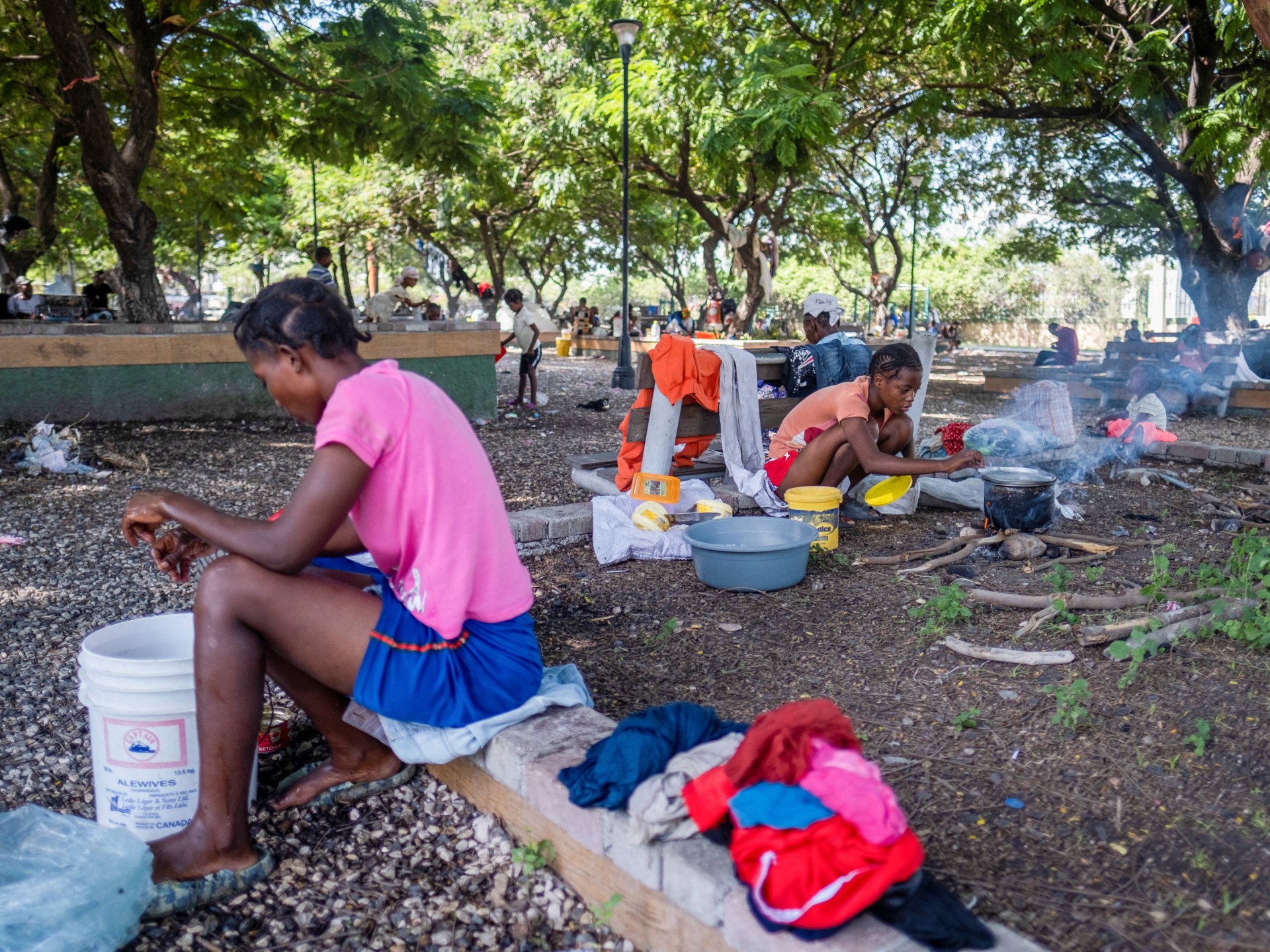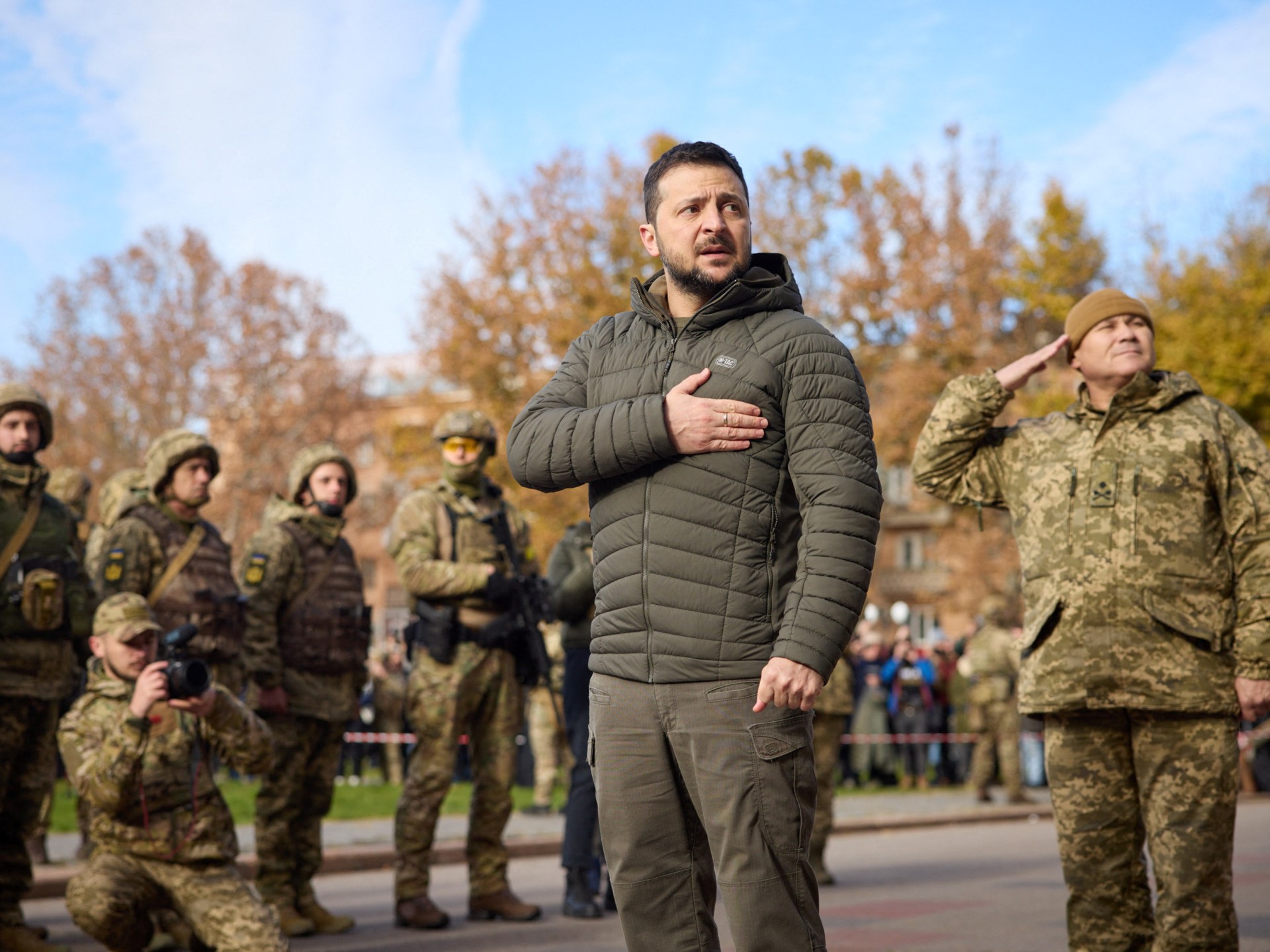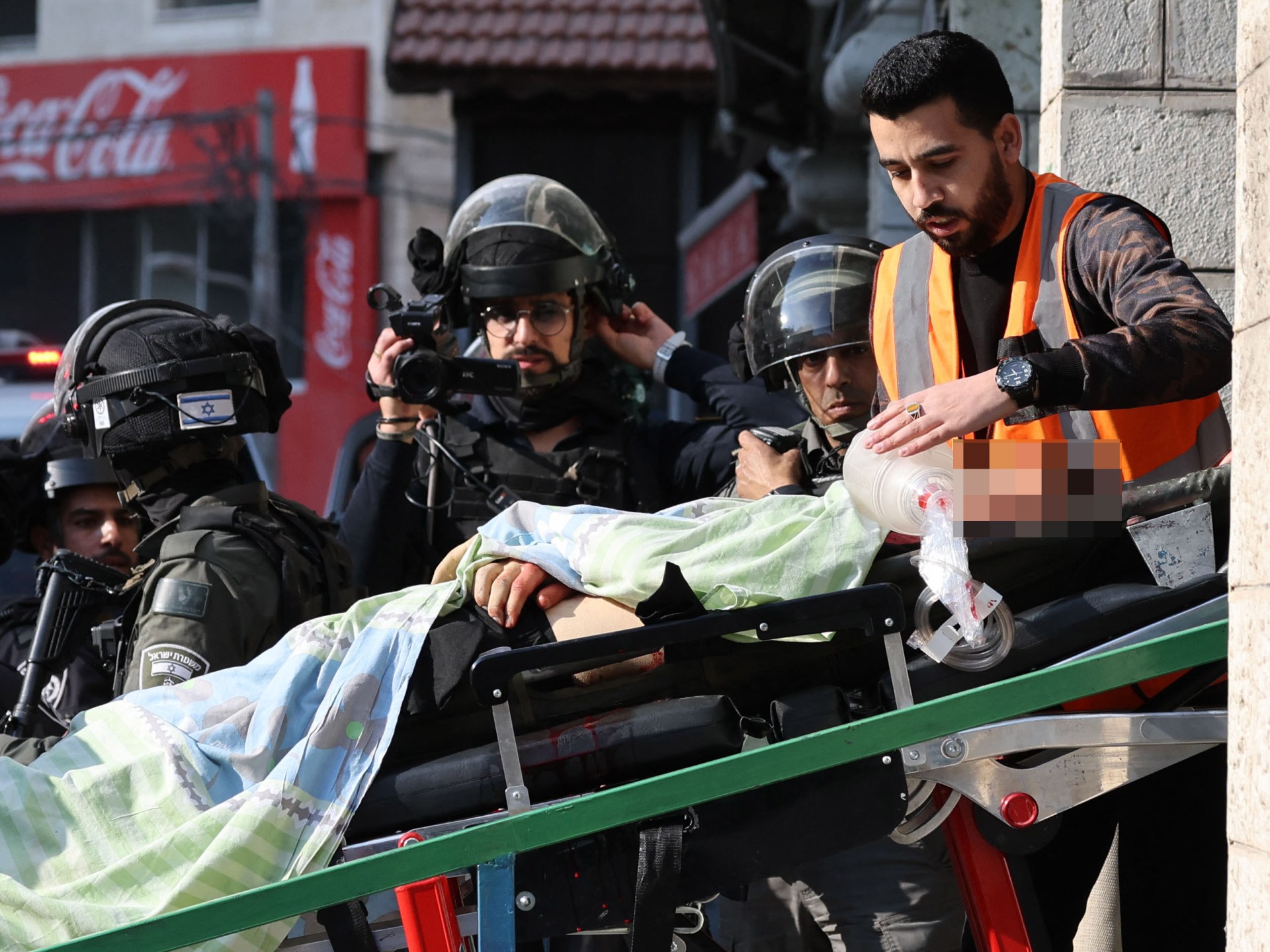After year of ‘unprecedented crises’, what next for Haiti? | Politics News
For Haiti, 2022 began much like the previous year ended – in the grips of widespread violence and political instability.
And over the past 12 months, the situation has largely failed to improve: Haitians have faced a surge in gang attacks and kidnappings, fuel and electricity shortages, a deepening political deadlock and a deadly outbreak of cholera.
“We don’t know what will happen tomorrow,” said Judes Jonathas, senior programme manager at the Mercy Corps humanitarian group. Jonathas spoke to Al Jazeera in October, as gang violence gripped the streets of the Haitian capital Port-au-Prince where he resides.
“It’s as if we’re living minute to minute. We go out, [and] we don’t know if we’ll be coming back,” he said.
As the nation continues to reel from several, overlapping crises, Al Jazeera looks at how the past year in Haiti has unfolded – and what 2023 may have in store.
Increased gang violence
Gang violence is not a new problem in the Caribbean nation, but it has been on the rise, particularly after the July 2021 assassination of President Jovenel Moise worsened months of political instability and created a power vacuum.
Haiti’s de facto leader, Prime Minister Ariel Henry, whom Moise chose for the post just days before he was killed, has faced a crisis of legitimacy, with some Haitian civil society groups urging him to hand power over to an inclusive, transitional government – a demand he has rejected.
Armed gang leaders also have used pressure tactics – including fuel terminal blockades – in an effort to force Henry to resign.
After months of mounting violence, one of the most powerful armed groups – the G9 gang alliance, led by former police officer Jimmy “BBQ” Cherizier – in September imposed another fuel blockade on the main petrol terminal in Port-au-Prince, known as the Varreux Terminal.
The move came after Henry’s government announced plans to end petrol subsidies, setting off public protests among Haitians already struggling with rising living costs.
The weeks-long blockade led to water and electricity shortages across Port-au-Prince, including at hospitals trying to treat cholera patients. Each crisis compounded the other, and a United Nations official said Haiti was staring down a “cholera time bomb” as the instability and violence cut off entire neighbourhoods.
The Haitian authorities regained control of the Varreux Terminal in November, allowing petrol stations to reopen and prompting celebrations in the streets – a rare bright spot amid simmering concerns over the power armed groups wield in the country.
International pressure
As gang violence reached crisis levels in Port-au-Prince in October, Henry – the Haitian prime minister – appealed for an international armed force to be deployed to Haiti to restore order and secure a humanitarian corridor to allow fuel and water deliveries in the capital.
The demand enjoyed the backing of the United Nations, as well as the United States, but set off fresh protests, with many Haitians, including civil society leaders, rejecting the prospect of foreign intervention.
Washington-led efforts to mount “a non-UN mission led by a partner country” to Haiti have stalled since then, as President Joe Biden’s administration so far has failed to get another nation to agree to lead such a force, US media outlets reported.
Instead, the US and its allies, notably Canada, have imposed a series of sanctions against Haitian politicians and others over their alleged support for gangs and other destabilising activities, such as drug trafficking and government corruption.
“Impose sanctions on high-profile individuals involved in corruption and who support and facilitate gang violence in Haiti [and] adopt drastic measures to stop the illicit trafficking of weapons from the US to Haiti,” Velina Elysee Charlier, an activist with anti-corruption group Nou Pap Domi, told the US House Foreign Affairs Committee during a hearing in late September.
Cholera vaccination campaign
Meanwhile, Haitian health officials continue to grapple with the outbreak of cholera.
Caused by drinking water or eating foods contaminated with cholera bacteria, the illness can trigger severe diarrhoea, as well as vomiting, thirst and other symptoms, and can spread rapidly in areas without adequate sewage treatment or clean drinking water.
The first infections in Haiti in more than three years were reported in early October, after a previous outbreak subsided in 2019. More than 17,600 suspected cases have since been detected, according to the latest figures from the country’s public health department (PDF).
A cholera vaccination campaign began on December 19 in some of the most affected areas, after Haiti received the first shipment of more than 1.1 million vaccine doses.
“The arrival of oral vaccines in Haiti is a step in the right direction,” Laure Adrien, director general of Haiti’s Public Health and Population Ministry said on December 12, adding that another 500,000 vaccines were expected to arrive in the coming weeks.
Migration
Over the past year, rising numbers of Haitians have left the country, seeking asylum and opportunity elsewhere in Latin America and the United States.
Thousands have made long journeys on foot, including across a perilous jungle passage between Colombia and Panama known as the Darien Gap, after finding employment and visa opportunities scarce in countries like Chile and Brazil. Others have taken boats in hopes of reaching the coast of Florida.
Haitians have been among the many migrants and refugees turned away by US authorities at the country’s southern border with Mexico in the past year. But in early December, the Biden administration announced that it was extending Temporary Protected Status (TPS) by 18 additional months for Haitian nationals already residing in the US.
The administration cited the conditions in Haiti, “including socioeconomic challenges, political instability, and gang violence and crime”, as the reason for extending TPS, which shields Haitians from deportation and gives them US work permits.
But thousands of Haitian migrants have been repatriated over the past year from Haiti’s neighbour, the Dominican Republic, the only other country on the island of Hispaniola. Top UN officials in November called on Dominican authorities to halt the removals, but they have continued.
Moise killing investigation
More than a year after a gang of armed mercenaries stormed Moise’s Port-au-Prince home and assassinated the Haitian president, the country’s investigation into what happened appears to have stalled.
Dozens of people, including several Colombian nationals, have been arrested as part of the ongoing inquiry into what led to the assassination on July 7, 2021. But the process has been slow-moving. Many questions – and theories – remain as to why Moise was killed.
The US Department of Justice has said a group of about 20 Colombians, as well as some Haitian Americans, participated in the scheme. While the plan initially focused on kidnapping Moise in a purported arrest operation, justice department officials said it “ultimately resulted in a plot to kill the president”.
The US has charged three men for their alleged roles in the assassination.
Calls for support
Now, as 2023 begins, international organisations have called for more support to help Haiti respond to the crises it faces.
“Things are now at a breaking point. This crisis will not pass – it needs renewed and robust humanitarian assistance,” Jean-Martin Bauer, the Haiti director of the UN World Food Programme, said on December 19.
Bauer said that more than half of the Haitian population – approximately 4.7 million people – face a food crisis. That includes 19,000 residents of the violence-plagued Port-au-Prince neighbourhood of Cite Soleil, who are suffering from a “catastrophic” level of food insecurity.
“What Haiti is experiencing now is not merely a bout of instability that will subside as part of some regular cycle the world is inured to. Haiti is experiencing a crisis on an unprecedented scale that can only worsen – unless we act fast and with greater urgency from us all,” he said.





Pingback: ks pod
Pingback: ufabtb
Pingback: Best universities in Africa